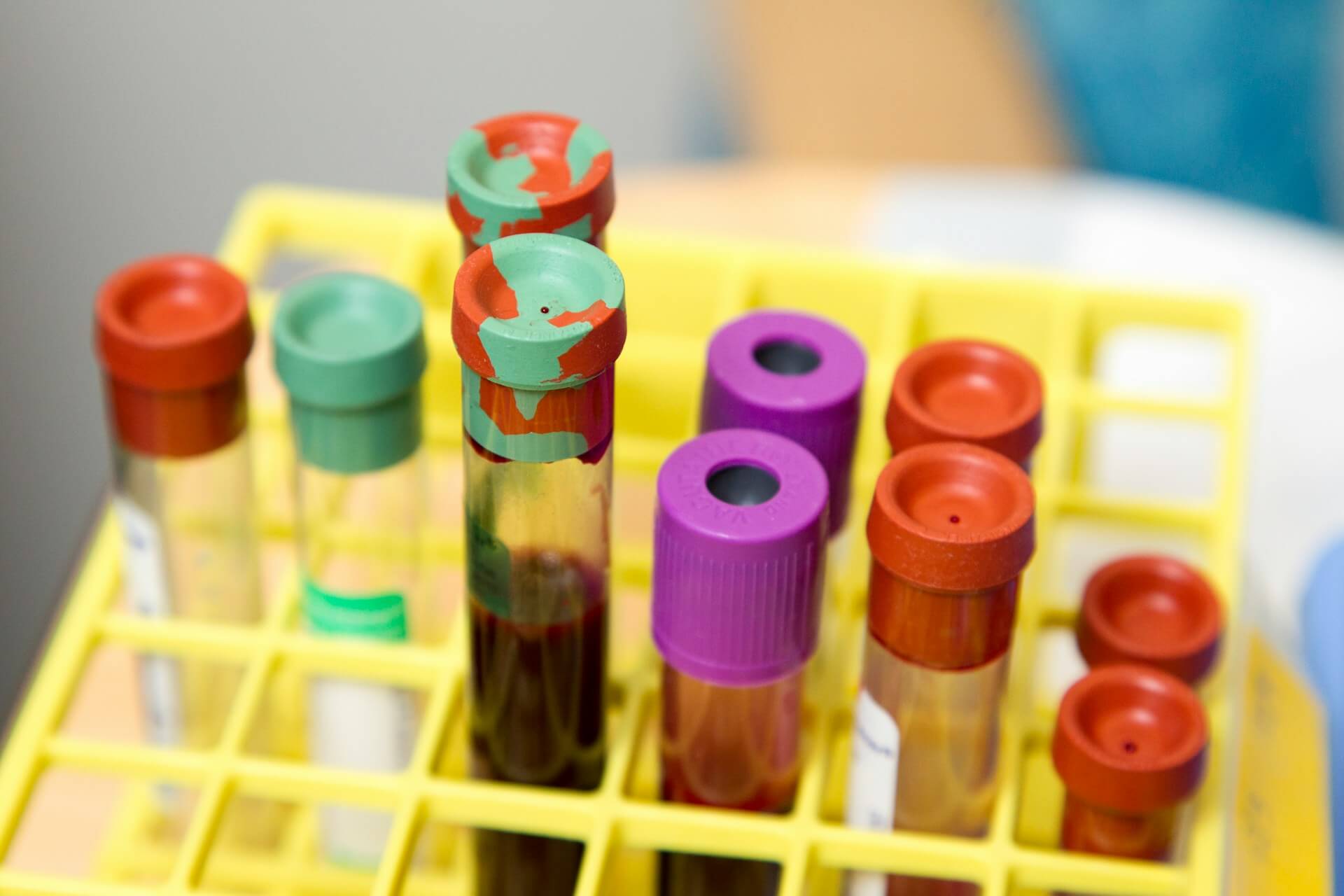Curious about fertility tips to help your trying to conceive (TTC) journey? Read below for part one of what I’ve learned throughout my own fertility journey and helpful resources to learn more!
Before my husband and I started trying to conceive (TTC), I didn’t realize how miraculous falling pregnant is. Many factors need to be considered, like a certain hormone balance and the small window for egg fertilization (as little as 12 hours for some!). And then the egg must implant in the right spot (no it can’t implant anywhere in the uterus; this was shocking for me, too). I’m in awe of all the miracles that happen consecutively to become and stay pregnant.
So, is there anything you can do to help the process along? Fortunately, there is! Of course, there are no surefire tactics; only habits and strategies that can increase your chances of conceiving. Keep reading for fertility tips I’ve learned during my TTC journey.
(Disclaimer: I’m no expert, just a 30-something-year-old who loves to learn and is also TTC. Please expand on the below with your own research and ultimately decide what works best for you).
#1 Get Blood Work Done

Does anyone else love getting their blood work done? I’ve been getting biannual bloodwork done for the past few years, and I love how much information it provides. It’s a great way to check in with your body and track trends over time.
How can blood work help with TTC? By working with a trusted healthcare professional, you can pinpoint areas to work on such as vitamin and mineral deficiencies, thyroid imbalances, blood sugar dysregulation, and much more. All of these play a role in the health of you and your potential future baby.
You can use blood work to target your nutrient supplementation. Let’s say your iron levels are below optimal; you’d probably want to supplement with iron if you can’t get enough from food. Or perhaps you could benefit from additional omega-3s and add them to your supplement regime, or start eating more mercury-safe fish like salmon and sardines.
Blood work can also highlight issues that may hinder your fertility, like thyroid and hormone imbalances. You may need to spend a few months supporting your thyroid before conceiving. Finding this out at the beginning of your TTC journey can save you time and months of unsuccessful attempts to get pregnant.
I can’t say enough great things about getting blood work done, even if you aren’t TTC! The information it can provide is invaluable and I highly recommend adding it to your yearly preventative check-ups.
#2 Start Preconception Supplements

Pregnancy is a demanding and transformative phase of life. Not just in the changes you see in your physical appearance, but also in the nutrients you need to support you and your baby. One of the ways to prepare is to take a prenatal before you’re pregnant. This preparation helps build up vitamin and mineral reserves for your body to take from when growing a baby, so it’s not all being taken from you! I’ve found multiple resources stating to start a prenatal at least three months before you start trying. One of these sources (and one of my favorite fertility books) is “Awakening Fertility” by Heng Ou. Her book explains multiple fertility tips from the world of Chinese Medicine, including tips for men. I also love the mental and emotional support she includes for this life chapter. I’ll make a separate post about preconception and pregnancy books I recommend.
Another fantastic book full of the current science behind nutrients needed in pregnancy is “Real Food for Pregnancy: The Science and Wisdom of Optimal Prenatal Nutrition” by Lily Nichols. Her book delves into necessary vitamins and minerals, why you need them, and the recommended forms and dosage. While this book speaks mainly to those already pregnant, I still find it so informative during my fertility journey. So much of the knowledge presented in the book (like types of exercise and foods to eat) can be implemented while trying to conceive. And why not get a head start on all the books you’ll most likely be reading once you’re pregnant?
For prenatals and other preconception supplements, there are many great (and not-so-great) options on the market. In all my research, I found the brand “Needed” and LOVE their products. They third-party-test every batch of supplements, include optimal forms of vitamins and minerals for better absorption, provide nutritional counseling, have information-packed articles on their website, and so much more. Their products also consider different diets. For example, they offer a vegan omega supplement and a separate choline supplement for those who can’t eat eggs. Needed also has a flavored prenatal powder and prenatal “essential” pills if you find it hard to take numerous pills while experiencing morning sickness.
Let’s not forget about our male partners in conceiving! Needed offers a supplement line for men to increase their fertility and overall health; how awesome is that? And you can purchase supplement package plans. Let’s say you’d like all their men’s supplements or only the basic supplements for women’s fertility. They’ve combined these products into a package “plan” and offered a discount for buying the plan instead of the products individually. You can also select a subscription option and receive an even further discount!
I also love how Needed organizes its website to list which supplements are recommended for which phase of your conception journey. From fertility to all three trimesters to postpartum and breastfeeding support, it takes the guesswork out of which supplements are needed or recommended for which phase of pregnancy.
This blog post is not sponsored, by the way. I just genuinely love Needed supplements, for both me and my husband. Another bonus I’ve noticed is that baby hairs are growing back along my hairline and my nails are stronger after taking their supplements for a few months. These are some added benefits I wasn’t expecting from taking their supplements!
#3 Assess and Revise Eating Habits

Now, I wouldn’t rely on just a prenatal for your vitamin and mineral intake. Sometimes the best way to get optimal doses of vitamins and minerals is through food! I highly recommend tracking your eating habits in a food calculator (like MyFitnessPal or Carb Manager) to see what your current way of eating provides you. Look at trends like how much protein, carbs, and fat you’re consuming at each meal and in one day. What’s your average iron intake? What about choline?
Lily Nichols’ book again is a fantastic resource for why we need certain nutrients and examples of where to find them in whole food sources. She also talks about how much of each macronutrient (protein, carbs, and fat) you generally need to support a pregnancy, especially protein. Protein is made up of amino acids which are the building blocks for every cell in the body; pretty important for making a baby from scratch! Lily Nichols’ book also breaks down common food myths around pregnancy like “eating for two”.
Another important aspect of your eating habits is how it affects your blood sugar. Do you feel like you rely on caffeine for energy? Are you experiencing afternoon crashes, anxiousness, irritability, disturbed sleep, and sugar cravings? These can all be symptoms of blood sugar dysregulation, which can cause the above symptoms and affect your hormone levels like cortisol (your body’s stress hormone that can raise blood sugar levels). Higher cortisol levels can also decrease progesterone, the hormone necessary for thickening your uterine lining when a fertilized egg implants. Read this post about managing blood sugar and stress to help your hormone levels to learn more!
So how does this information help with fertility? Just like starting a prenatal before you’re pregnant, you and your body will benefit greatly from implementing a healthy way of eating. I feel it’s also much easier to focus on building better habits before you get pregnant. When you find out you’re expecting your focus will be on many things. Like scheduling your first ultrasound, pregnancy announcements, and baby names! Build these fertility and pregnancy-supporting habits now so you don’t have to spend as much brain power on them during pregnancy.
Conclusion
While we can’t 100% control the process of naturally falling pregnant, there are habits and strategies we can implement that can increase our chances. The above fertility tips are a great place to start! Read this second blog post for additional fertility tips on blood sugar regulation and stress management to support your hormones. Again, this is all information I have learned in my TTC journey through books, podcasts, and my own trusted healthcare professional. I highly recommend the resources mentioned and linked above to learn more for yourself. I’d love to hear any fertility tips you found that helped your journey – please leave me a comment below!


My brother suggested I might like this website. He was totally right. This post actually made my day. You cann’t imagine just how much time I had spent for this information! Thanks!